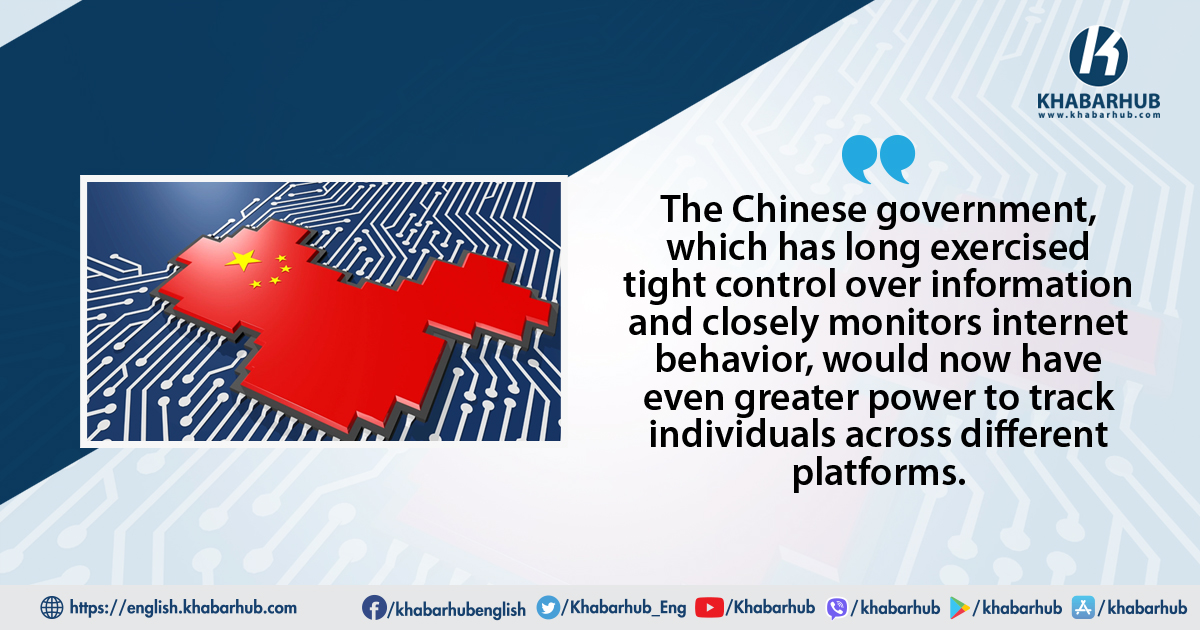The Xi government’s attempt to introduce a national internet ID system has sparked a heated debate both within China and outside.
The Ministry of Public Security and the Cyberspace Administration of China (CAC) recently released controversial draft regulations that would require internet users to obtain cyberspace IDs before going online.
Although applying for these IDs is said to be voluntary, the draft has already evoked strong reactions from critics and netizens, who view it as an attempt to stifle online opinions.
The draft proposal is open for public comments until the end of August, but the swift preparation of a pilot program suggests accelerated progress.
Experts have raised their concern over the timing of the draft as it coincided with the Chinese Communist Party’s annual Beidaihe meeting of current leaders and retired elders in Hebei province.
This is not the first time the Xi government has attempted to regulate who can post content on social media and what details can be shared.
In December 2023, China tried to gamify censorship and surveillance through a national internet law quiz.
It would give the police much greater insight into what people are doing online.” Xinlu Liang from the South China Morning Post reported on legal experts’ concerns over the proposal’s implications for privacy and government oversight, specifically its potential to intensify surveillance over individuals’ online activities.
The CAC had introduced an online knowledge competition focused on the rules of proper socialist internet use and other cyber issues.
The content was carefully curated by the CAC, covering dozens of laws and regulations in the internet realm, such as Xi Jinping’s thoughts on the rule of law, the constitution, the civil code, the cyber security law, the data security law, the personal information protection law, and regulations on internet protection for minors.
Referred to as a “national internet laws and regulations knowledge cloud competition,” the 2023 version was described by the CAC as “richer, more comprehensive, and more accurate in learning content.”
In the name of “cleaning” the internet, Beijing had launched an aggressive campaign as far back as 2021.
The CAC targeted apps that violated data laws, ordered the removal of content it disapproved of, such as wealth flaunting, violence, and bullying, and instituted restrictions on time spent on video games.
The move instilled fear among China’s online operators, especially as the CAC timed its new blitz to coincide with summer holidays, a period when children have more free time to engage in online activities.
The blitz targeted short video and live-streaming platforms, social media, e-commerce platforms, app stores, and smart devices for kids, among others.
However, it remains unclear how effective these measures were in instilling the desired compliance among China’s online operators.
According to an article in the New York Times, it’s already difficult to remain anonymous online in China.
Websites and apps must verify users with their phone numbers, which are tied to personal identification numbers assigned to all adults.
The new proposal by China’s internet regulators could make anonymity even harder by centralizing the verification process under the government’s control.
It may be mentioned here that China had introduced online real name verification system 12 years ago and over a billion netizens have already provided personal information to various internet service providers for identity authentication.
However, the controversial proposed national internet ID system may hold little practical significance other than to control people’s behavior online.
The so-called “protection of individual user data” is viewed as a mere ruse; it is, at best, not the main purpose of this proposal.
The real objective, much like the real-name verification system, seems to be strengthening control over individuals’ online speech, reported chinadigitaltimes.net.
According to guidelines for the proposed national internet ID system, the CAC will issue unified digital IDs that will be used in place of real names when signing up for online accounts.
Although applying for the IDs is described as voluntary, critics fear that platform companies will eventually succumb to government pressure and stop allowing users to access their services without such IDs.
Those without the IDs may eventually be excluded from the internet.
“Protection of personal information is just a pretext; the new system is actually aimed at restricting individuals’ opinions on the internet,” one critic said in an online post.
This and other critical posts have since been deleted by Chinese authorities.
The move is a reminder of pandemic days with some arguing that if China’s internet speech controls become more draconian, the state could face pent-up frustrations similar to those that led to the 2022 protests, which ultimately ended the zero-COVID lockdowns.
Parallels are also being drawn between the proposed IDs and the health code apps used during the pandemic.
Ironically, Chinese citizens still have bitter memories of the zero-COVID years when President Xi Jinping’s administration clamped down hard on the free movement of people. The apps were blatantly used to enforce Xi’s lockdowns.
Contrary to these remarks, the Ministry of Public Security and the Cyberspace Administration of China maintained that the proposal is meant to protect privacy and prevent online fraud.
They claimed that a national internet ID would reduce “the excessive collection and retention of citizens’ personal information by internet platforms on the grounds of implementing real-name registration.”
However, critics have a different viewpoint. They argued that the Chinese government, which has long exercised tight control over information and closely monitors internet behavior, would now have even greater power to track individuals across different platforms.
Few Chinese legal scholars have also voiced their concerns. Lao Dongyan, a law professor at Tsinghua University, warned that the protection of personal information is merely a pretense to make social control routine and regular.
Tom Nunlist, associate director at China-focused consultancy Trivium, told The Financial Times that the proposal could “significantly expand the government’s ability to monitor people’s activity online.
It would give the police much greater insight into what people are doing online.” Xinlu Liang from the South China Morning Post reported on legal experts’ concerns over the proposal’s implications for privacy and government oversight, specifically its potential to intensify surveillance over individuals’ online activities.
Rose Luqiu, an assistant professor of journalism at Hong Kong Baptist University, stated, “With this internet ID, your every move online, all your digital traces, will be monitored by the regulators. That will definitely impact people’s behavior.”
Few Chinese legal scholars have also voiced their concerns. Lao Dongyan, a law professor at Tsinghua University, warned that the protection of personal information is merely a pretense to make social control routine and regular.
She compared the system to the health code app that tracked people’s movements during the COVID-19 pandemic.
Another law professor, Shen Kui of Peking University, stated that a centralized internet ID would make people fear using the internet.
“The potential risks and harms of a unified ‘internet ID’ and ‘internet license’ are immense,” he wrote.









Comment